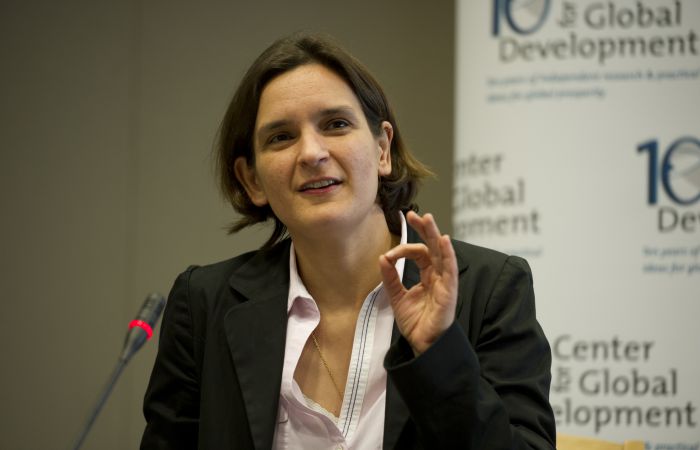As 2019 draws to a close, we look back at ProMarket’s most-read and most-widely shared stories of the past year.

Thomas Piketty’s long-anticipated follow-up to Capital in the Twenty-First Century, the corruption scandals and rapacious monopolies that led to political chaos in Chile, the academic research that helped Uber push its PR narratives, and the so-called “biggest puzzle in economics.” As 2019 draws to a close, we take a look back at ProMarket‘s most popular stories of the past year.
In a year in which corruption, crony capitalism, and monopoly power seemed to drive the world further into political instability, it is hardly surprising that the pieces that most resonated with ProMarket readers largely revolved around suggestions to reform capitalism for the better. As recent Nobel Prize laureate Esther Duflo put it in a 2011 piece republished by ProMarket, often the thing that drives our thinking forward is simply being able to find the “right questions.”
1. Thomas Piketty’s New Book Brings Political Economy Back to Its Sources
Capital in the Twenty-First Century, Piketty’s 2013 magnum opus, transformed the way economists look at inequality. His new book Capital and Ideology (English translation appears in March) will transform the way political scientists look at their own field, argues Branko Milanovic in his review of the book. (September 6)
2. Dear Graduates, Here’s What You Can Do to Change Capitalism For the Better
Delivering UChicago’s 532nd Convocation address, Luigi Zingales advised young graduates to embrace their power as consumers, workers, and citizens: “To fight monopolies, your power as workers, consumers, and investors is not sufficient. Your participation in the political process is critical. This is not a Republican or a Democratic battle, it is an American battle.” (June 21)
3. How Economic Concentration and Crony Capitalism Led to the Chaos in Chile
The signals of unrest in Chile mounted for years amid corruption scandals, rising inequality, and new monopolies. The fare increase on public transport that sparked the protests was only the final straw, explains Daniel Matamala in this piece on Chiel’s political crisis. (October 22)

4. How to Find the Right Questions
In this piece, originally published in 2011, Esther Duflo (co-recipient of the 2019 Nobel Memorial Prize in economics) reflects on her academic career. “Write the book (or the article) that you would have liked to read, but you could not find. This may sound fairly obvious, but I am always surprised by the fact that many young researchers do not seem to know why they are researching a particular topic, or, when they do know, seem to have picked it for the wrong reason,” she advises young scholars. (October 14)
5. The “Biggest Puzzle in Economics”: Why the “Superstar Economy” Lacks Any Actual Superstars
Asher Schechter reviews a recent study by Thomas Philippon and Germán Gutiérrez, which finds that the contribution of superstar firms to US productivity growth has decreased by more than 40 percent over the past 20 years. (March 4)
6. Wealth Inequality in America: A Race Between the Stock and the Housing Market
A recent study by Moritz Kuhn et al. shows that booming stock markets and the collapse of house prices in the aftermath of the 2008 financial crisis have increased wealth inequality in the US to a new historical high. Meanwhile, the racial wealth gap has stayed put for over 70 years, with virtually no progress in reducing wealth inequality between black and white households. (April 29)
7. “Economics Now Points Away From the Laissez-Faire Approach”
In an interview with ProMarket, Columbia professor Suresh Naidu discusses Economics for Inclusive Prosperity, the initiative he launched with Dani Rodrik and Gabriel Zucman, and why he believes economics shouldn’t be conflated with neoliberalism. (April 4)

8. The Reality of Inequality and Its Perception: Chile’s Paradox Explained
While conventional indicators show that Chile experienced a significant decline in inequality, writes Sebastian Edwards, the perception among the country’s citizens is that inequality has greatly increased. The development model Chile followed since the 1980s was successful in generating growth and reducing poverty but did not function properly in a middle-income country, he argues. (November 19)
9. Uber’s “Academic Research” Program: How to Use Famous Economists to Spread Corporate Narratives
Uber’s employees co-authored academic papers with brand name scholars, which were then used to back the company’s PR and lobbying strategy. Published in respected journals, those articles are based on proprietary data and non-replicable analysis. Moreover, they all don’t discuss the subsidies that make it possible for Uber to pursue market dominance despite its endless losses. This is the third and final piece of Hubert Horan’s series on Uber’s corporate narratives. (December 5)
10. Amazon’s Latest Supplier Purge Is a Classic Indicator of Price Predation
Regulators in Washington should immediately launch an investigation into Amazon’s e-commerce business, argues Shaoul Sussman. (March 14)
The ProMarket blog is dedicated to discussing how competition tends to be subverted by special interests. The posts represent the opinions of their writers, not necessarily those of the University of Chicago, the Booth School of Business, or its faculty. For more information, please visit ProMarket Blog Policy.






